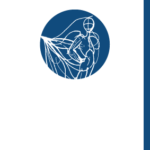Abstract
The Italian legislation concerning professional training and information for workers, arising from the State Regions agreement n.221 fo 12/21/, does not seem totally suitable to verify how many and which skills the workers have actually
acquired. Our work aims to draw attention to the opportunity to review and reform the training paths, through the identification of critical points, such as deficiencies and redundancies, and reports of new opportunities, in the proactive direction of a new methodology for designing courses in professional training, aimed at raising its efficiency and effectiveness,
resulting from the improvement of knowledge and practical skills acquired by learners. A potential critical factor, capable
of degrading the primary function of a professional training course, seems to be correlated to the excessive number of frontal training hours, dictated by the ATECO membership code, since they often end up teaching theoretical contents, often
not related to the sector they belong to, without assessing the “know-how” of workers, but only “knowing”. The adoption
of teaching methods that actively involve workers, through group work techniques, in situ simulations, practical exercises
of machines and work equipment, could lead to overcoming passive participation, raising learning skills. The proposal of
courses with theoretical and practical verification by institutional bodies and the drafting of a “skills book”, which certifies
what the workers have learned in the courses, making it easily demonstrable in case of an inspection, could facilitate the
function of the Supervisory Authorities, favouring a control oriented on the content rather than formal aspects

This work is licensed under a Creative Commons Attribution-NonCommercial-NoDerivatives 4.0 International License.
Copyright (c) 2019 Journal of Advanced Health Care





